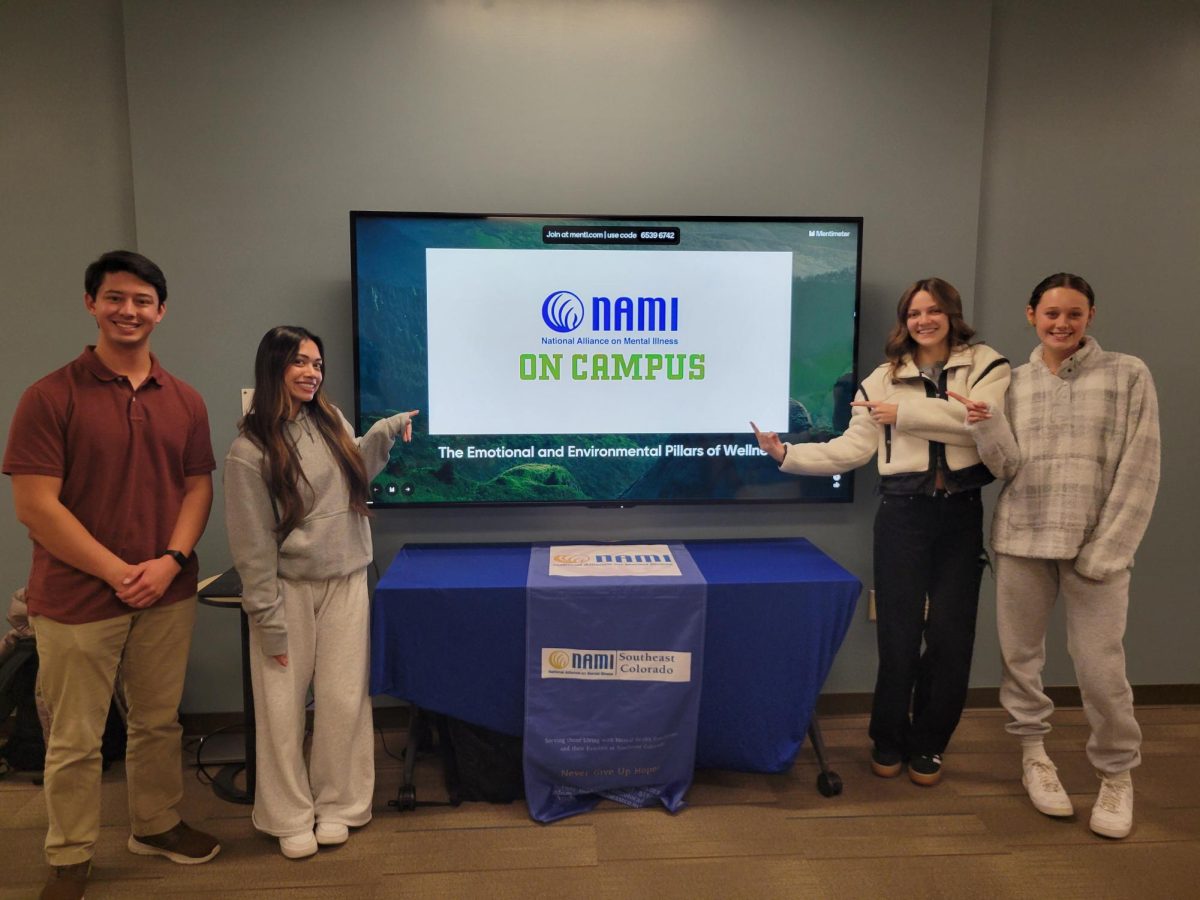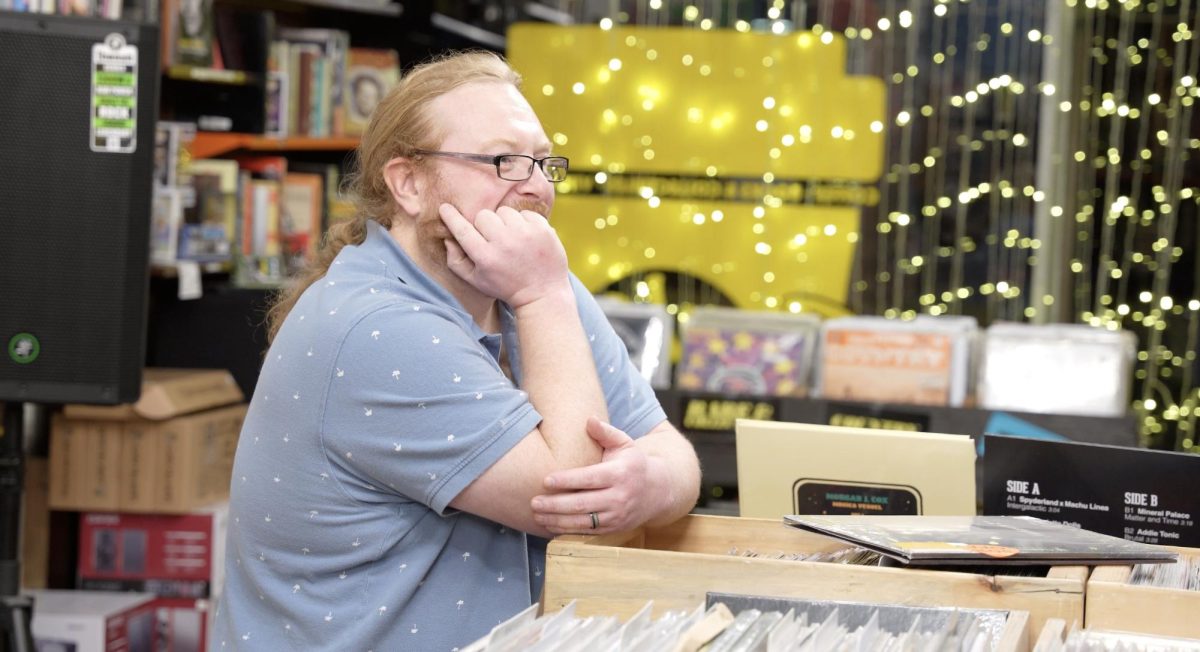Pulitzer Prize-winning historian Doris Kearns Goodwin presented the third lecture in the four-part Voices of America Distinguished Lecture Series Feb. 19 in Hoag Recital Hall.
Goodwin has had many notable accomplishments, including being the first woman journalist to gain admittance to the Boston Red Socks locker room. Her love of baseball developed when she was a young girl, and she said it helped fuel her drive to record the past. (See videoclip below.)
“I think what happened is that my father grew up in Brooklyn and I grew up in Long Island and he was a huge baseball fan. I was the third daughter in the family and ever since I was little he taught me how to keep score. If you keep score, it allows you to record the history of the game. It was my first love of history to be able to keep my father’s attention,” Goodwin said.
In her speech, she mentions how thrilling it was for her to watch the Dodger games on television in the afternoons when her father couldn’t be there and how attentively she would keep track of the play by play. She said that when her father would come home, he would sit and listen to her recounting the game to him, sometimes for hours.
“He never told me, ‘oh this is actually described in great detail in the newspaper sports pages the next day’ so I thought without me he wouldn’t even know what had happened to the Brooklyn Dodgers,” she said.
This time with her father also taught her the fine art of narrative. She smiles as she recounts her excitement to tell her father the result of the game right as he got home, which she said took away from the drama of the story.
“I learned that you have to tell a story from beginning to middle to end,” she said.
Goodwin has authored five books, four of which are about presidents serving their terms in difficult times. Her first book, released in 1976 entitled “Lyndon Johnson and the American Dream,” became a New York Times bestseller. She was close to President Johnson during his time in office, working as a White House intern.
“My fascination with presidents took root when I was able to be a 24-year-old While House intern for President Johnson. It used to be a badge of honor, I now say it with somewhat more trepidation,” she said jokingly.
She was actually a White House Fellow and served with Colin Powell. The program was started in 1964 under President Johnson as a way to bring individuals with high promise to involvement in the White House and with government. According to the White House Web site, Fellows spend a year working as full time paid special assistants to senior White House Staff members.
“We had a big bash the night we were selected. President Johnson did dance with me, not that peculiar; there were only three women out of the 16 Fellows. But as he twirled me around the floor, making these huge dips that almost landed my head on the floor he said ‘I bet your stuffy Harvard guy can’t dance like I can’ and he whispered that he wanted me to be assigned directly to him in the White House,” Goodwin said.
That was easier said than done because in the months before her selection she had been active in the anti-war movement and had written an article in protest. The article was published two days after the dance in the White House; she said the theme was “how to remove President Johnson from power.”
Instead of turning her away or kicking her out of the program, President Johnson requested her presence in his office saying, “If I can’t win her over no one can,” Goodwin said.
She describes how her uneasiness about his feelings toward her dissipated when he told her that she was like his mother and she said they became close friends because of her ability to listen attentively to the things he said, even if it was a tall tale.
Goodwin’s latest book, “Team of Rivals: The Political Genius of Abraham Lincoln,” describes not only Lincoln himself, but the men he chose to surround himself with as his cabinet.
“No one I think is more fascinating than Abraham Lincoln,” she said.
He allowed his political rivals, men who had campaigned hard against him, to be close to him and even invited members of the opposing parties in. She said that this union of opposing viewpoints helped Lincoln make the difficult decisions that faced him by providing a balanced look at the situations.
The book took ten years to complete, and she said that more than anything she was unprepared to discover his strong sense of humor.
One of the most important things Goodwin said she wants people to remember about Lincoln and why she thinks he has become an important figure in our history has to do not only with the Civil War, but the way he lead the country.
“His personal leadership style provided, in my judgment, attributes that we should be looking for as we look toward the next election in 2008,” Goodwin said.
The motivation to accomplish something memorable in a lifetime, so as to be remembered, was instilled in Lincoln early, she said. He lost his mother at the age of nine. Her death was the first of many in his lifetime.
“As his mother lay dying, she didn’t hold out any hope that they would meet in the afterworld. She simply said to him, ‘Abraham I am going away from you now and I shall never return,'” Goodwin said.
Those words had a lasting effect on the way that he viewed the world and his place in it. He wanted to live on in the memory of others, to have a lasting impact on history.
“He became obsessed with the thought that when we die that is the last of us. That dust becomes dust,” she said.
This was the fuel that motivated Lincoln, and Goodwin thinks that the fuel of future generations will come in the form of unity.
“When I was young it was the 1960s and I must say, looking back it was an exciting time to be young because there were so many big issues that we all were caught up in. It makes you feel, I think, more to be a part of something larger. I hope for your generation that time will come again because it hasn’t been there for a while, when young people really feel a sense of connection to the issues of the day and can feel connected to one another because of it,” Goodwin said.







